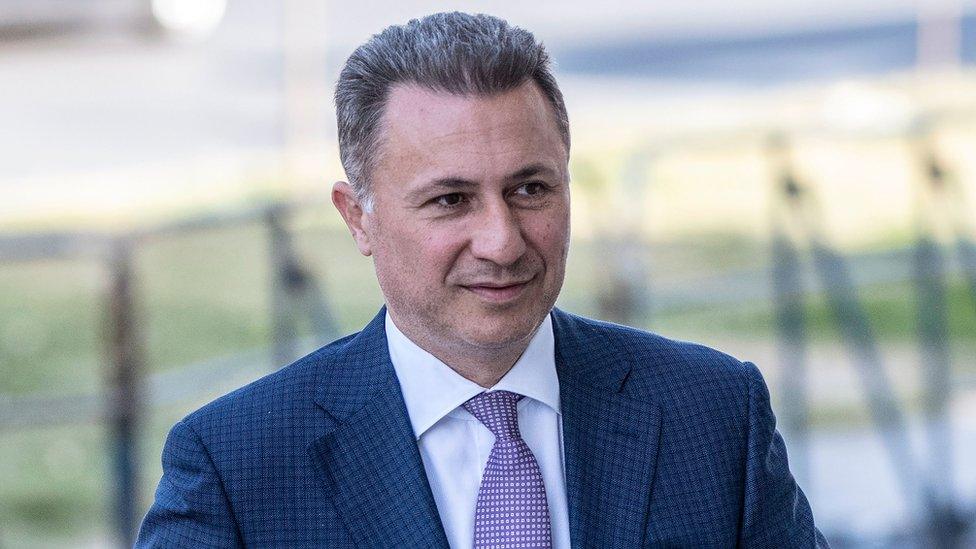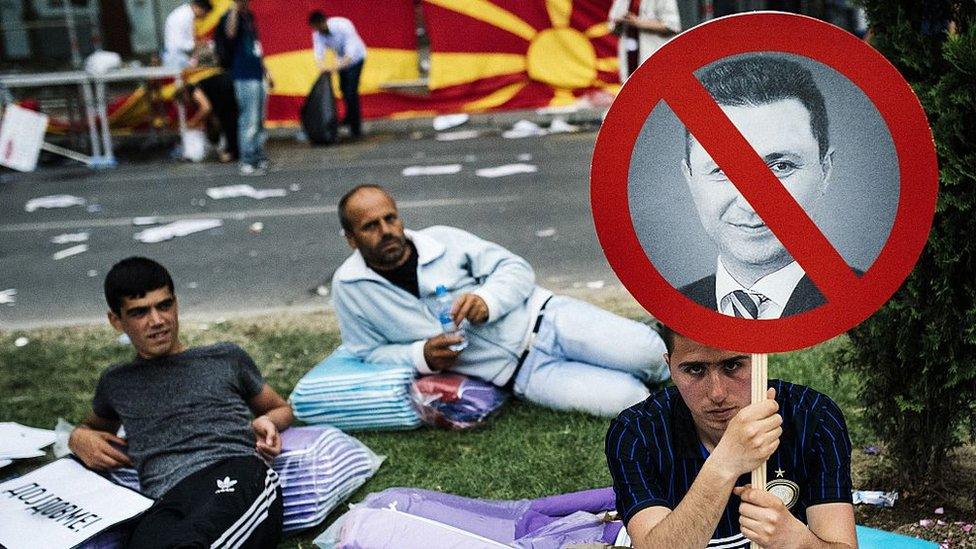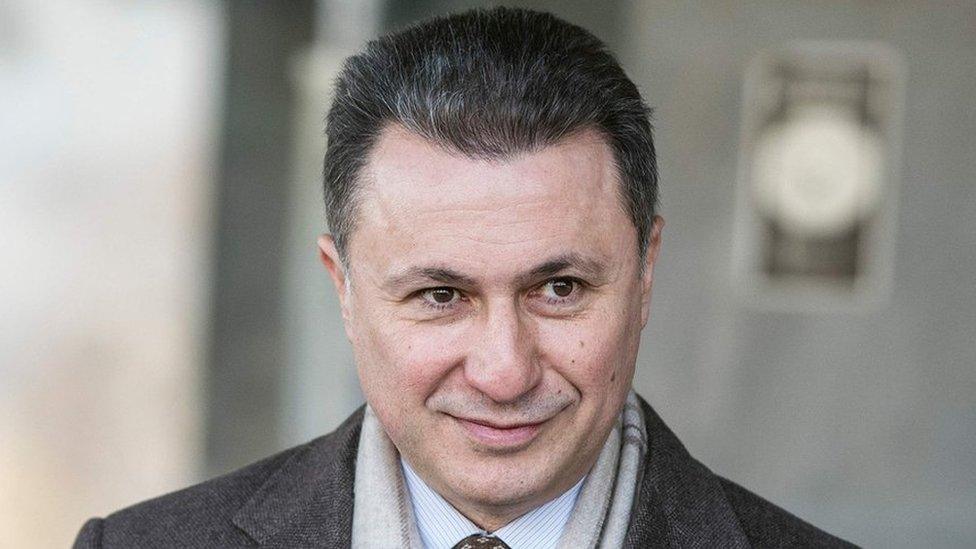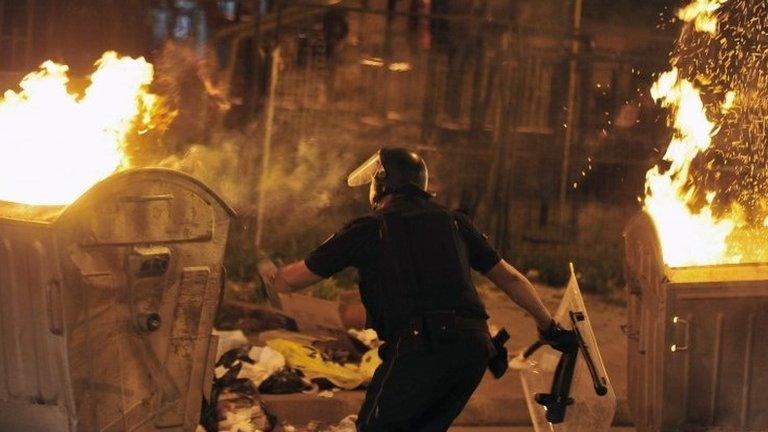Macedonia ex-PM Nikola Gruevski 'seeks asylum in Hungary'
- Published

A post appeared on former Prime Minister Nikola Gruevski's Facebook page saying he was seeking asylum
Macedonia's former Prime Minister Nikola Gruevski has reportedly fled to Hungary after failing to show up to begin a two-year prison sentence.
In a Facebook post, Mr Gruevski said he was in Budapest and had requested "political asylum".
Hungarian authorities have not confirmed his asylum application.
The former premier was due to begin a term in prison for corruption from 9 November but did not surrender himself. Police ordered his arrest on Monday.
Earlier this year, a court in the Macedonian capital Skopje found he had unlawfully influenced officials over the purchase of a luxury bulletproof Mercedes Benz.
Mr Gruevski was forced from office in 2016 over a wire-tapping scandal.
The former prime minister's Facebook post appeared on Tuesday, although it is not known if he wrote it.
"In the last few days I have received countless threats to my life," it read, external.
"I am in Budapest now, and I have asked for political asylum from the Hungarian authorities. I will always remain true to the cause of Macedonia. I will never give up."
Macedonian authorities are reportedly checking the authenticity of the post.
A Hungarian government spokesperson meanwhile told Reuters news agency that they could not comment on individual applications for asylum that were still being processed.

Mr Gruevski stepped down in 2016 after protests broke out against his government
Mr Gruevski reportedly did not leave the country "through a legal border crossing", according to an anonymous police officer quoted by Reuters.
His passport had reportedly been confiscated to prevent him leaving the country.
Police began their search for the former premier on Monday after he failed to show up for his prison term.
The Mercedes case for which he was convicted was the first of five cases against the long-serving leader to go to trial.
He served as Macedonian prime minister for a decade from 2006, and as leader of the VMRO-DPMNE party from 2003 until 2017.
Violence erupted in the streets of Macedonia in 2015 in protest against Mr Gruevski's government, which culminated in his resignation in January 2016.
An inconclusive election that December led to further clashes. Supporters of the former premier stormed Skopje's parliament over the election of an ethnic Albanian as speaker.
- Published23 May 2018

- Published6 May 2015
